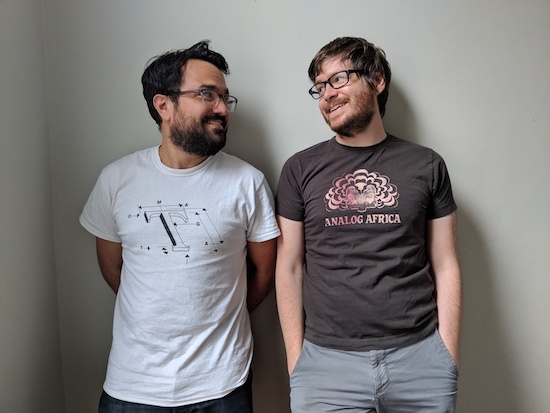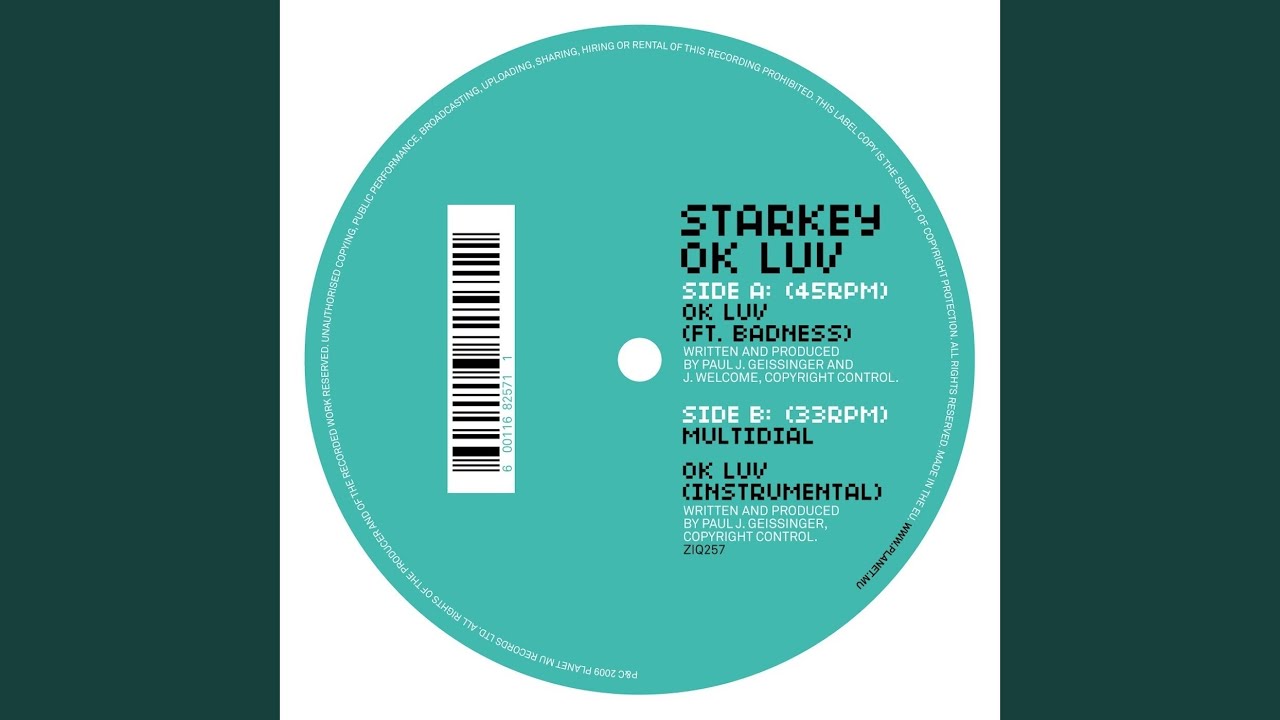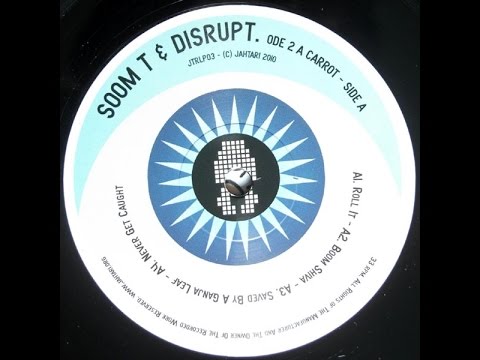Photograph by Justina Budd
Promoting the fertile underground of boundary-pushing independent music we find in New Weird Britain is fairly illogical from an economic point of view. You can run a website that gets millions of people reading about otherworldly sounds or you can run an innovative, exciting record label that promotes culturally enriching music and just about scrape enough money to keep the lights on.
My role in this emotionally draining, financially crippling, utterly enthralling world is this: I co-host the Independent Music Podcast – a show that celebrates independent music every week (I really was never good at creative names). As me and my co-host Anthony Chalmers released our 200th episode today, tQ asked me to write about the “thankless task of running the podcast.”
Whilst I consider how to do that without feeling like an old man shouting at a cloud, I’ll show off some numbers that look impressive. To date the podcast has promoted 2,599 unique independent artists and record labels, we have played over 2,000 tracks recorded outside of the major label system, and we have been heard by over half a million ears. We recently got ranked as one of the "top 20 Music Podcasts You Must Subscribe and Listen to in 2018" by Feedspot alongside WTF with Marc Maron, Song Exploder, and some other proper, money making endeavours.
So running the podcast isn’t completely without thanks, but fewer than 1% of people who listen to our show ever get in touch with us or support us financially. The best moments come when we get an email telling us we have a new patron, or when someone who cuts weed for a living emails us from California to tell us that the podcast got her through her trip from Taiwan and that she’s since developed a fondness for Indonesian throat singing, or when a university professor in Hawaii emails to say he listens to the show with his students.
Interaction with listeners is by far the highlight of running a podcast. There’s nothing worse than shouting into a void, especially when you’re hugely passionate about the music, artists and record labels you’re trying to promote. You can have all the upward trends on your listener graphs, but they’re nothing without real human stories behind them.
Where do I start with the lows? Probably every time I’m in a pub and an acquaintance drops £5 on a pint for me without blinking. The complete disconnect between buying a mate an exorbitantly priced drink that lasts less than an hour and giving two people less than that for providing more than 500 music recommendations a year is some logic I’m still trying to figure out.
Listening to hours and hours of terrible music is also a less enjoyable task. For 500 great tracks we play out every year we probably listen to 5,000 terrible ones – mostly ropey reggae on Soundcloud and earnest Americana bands who submit music to literally every music outlet they can find without taking the least bit of effort to actually see what that outlet does. The ease by which people can record has been revolutionary in terms of forward-thinking music, but when someone is forcing me to listen to yet another ‘Sex On Fire’ knock-off I wonder whether it’s really all worth it. You couldn’t shower me in enough gold to listen to that Kings Of Leon monstrosity, but I’d happily listen to knock offs for a month if it was the only way to guarantee stumbling across the latest Chinabot release.
As with running a website or a record label, the unseen hours that go into the admin are mind-numbingly boring. Prepping, editing and uploading the show; doing the social media thing; seeing whether people listen to it and seeing whether this figure is greater than it was last year is work that takes hours and hours and is hard to fit in round a 9-5 job. Without the money to get skilled people in to do a lot of these things means that it all lands on my lap. It’d be nice to have a break now and again, but with so much great music coming every week, it’s continuous.
But the reason we do it and the reason the podcast exists is because promoting innovative, exciting music is much more enjoyable than the job is tedious. If we get one more person listening to the new Gazelle Twin record, or we can convince another person that dancehall isn’t just a genre for stoners, or we melt someone’s mind with some Russian noise punk, that makes the crippling doubts, the confusion, the long hours, and the terrible, terrible music we trawl through all worth it.
I regularly read rants from old music heads bemoaning the state of the ‘industry’, but what I learned long ago is that the industry has never been about innovation. If you want to live where innovation is, you have to be prepared for it to be a hard slog, where the best you can hope for is keeping the lights on and having nice things said about you.
Many years ago I worked with a band who had been handed everything on a plate. The band leader was the spawn of a Celine Dion-Bucks Fizz related tryst and money was everywhere. They had the ‘rock & roll’ life™ – a camera crew following them, drugs, booze, women, the stereotypes of ‘the industry’. Unsurprisingly The music had no soul, the songs were about nothing, and the protagonists were vacuous drones. There’s no fun in that, no excitement and the only thing I got was a long, surreal story about driving strippers around Birmingham for a summer.
What we want to do is broadcast the excitement we should have about music coming out now and tell as many people as possible about the Gazelle Twins, the Sealionwomans, and the Ela Orleans of this New Weird Britain, but also include the Eartheaters, the Сольвычегодскs and Nyege Nyege Tapes from the wider, exciting world of interesting, innovative music.
We want to create a podcast for adventurous music lovers, and with more people onboard, we’ll be able to keep bringing the world’s most interesting music to thousands of ears.
Some links where you can listen to the podcast:
Independent Music Podcast: Top ten tracks
Starkey – OK Luv (instrumental)
The very first track on the first podcast we ever recorded. The show recording is absolutely shambolic as we didn’t really know each other or what the show was meant to be other than two people playing music they liked. We were just chatting into a laptop mic rather than having actual microphones, and we had a penchant for creating jingles.
Despite the amateurishness of the recording, the music on that episode still stands up eight years on – Factory Floor, Drum Eyes, and this Starkey track all sound fresh. Planet Mu is a label I still admire, and we’ve played their stuff on 11 shows – most recently on episode 190 when we played a track from Jlin’s mesmerising recordings for Wayne McGregor’s contemporary choreography show Autobiography.
Soom T & Disrupt – Saved by a Ganja Leaf
From podcast 32 – one of the last ones before marriage, moving house, and eventual divorce took the podcast off air for four years between 2011-2015. It was the first time we played a track from Jahtari – the Leipzig label that reinvigorated our love for dub, dancehall, and reggae. We fell so deeply in love with these sounds that we started a short-lived digidub night.
Jahtari is our fifth most played label on the podcast because they are a label that never doubles down on a particular sound. They are constantly evolving and elevating dub music to higher planes, whilst many reggae-influenced labels cash in on shoddy, half-baked productions. Their recent releases from WaqWaq Kingdom and label boss Disrupt are more cosmic dub that you hear on Soom T’s seminal Ode To A Carrot. This was digidub at its absolute peak in 2010 and, along with Jahtari compilation Jahtarian Dubbers Vol. 2, is a must listen even today.
Tomaga – Sittisk Polk
Probably the earliest band we ever championed and I still tend to have a tear in my eye when I see Tomaga play. One of the best things about running the podcast with a friend is that the music they recommend is more likely to be life-changing than if you go off into the world trying to find something new. When Anthony played this track from Tomaga’s split cassette with Orlando (now Vanishing Twin) on podcast 41, I knew this was going to be a band I would fall in love with.
Pye Corner Audio – Machines Are Obsolete
Since before the podcast I’ve been a fan of library music, and that ultimately led me into the world of Ghost Box records (Anthony is now putting on a Ghost Box night at Cafe Oto in London, something I’m taking some credit for). This track from Pye Corner Audio on podcast 50 was the first of five times we’ve featured Martin Jenkins on the show, and whether it’s under PCA or his Head Technician moniker, he always manages to produce music that is interesting, which is ultimately the only thing that ties together all the music we select.
JahYu – To The End of the Earth and Sea
No track really represents the podcast better than JahYu’s ‘To The End Of The Earth And Sea’. The Korean producer uses throat-singing on another level (perhaps only matched by other favourites like Senyawa) and mixes it with dubs commonly found on Alpha Steppa’s Steppas label to create a record that – to me – is without parallel. This is exactly the type of track we want the podcast to introduce to a wider audience: weird, unusual, otherworldly. It was the only track that has got us a flood of comments from listeners telling us how much they liked it. In the 122 podcasts since we played it on number 78, we’ve never had such an overwhelmingly positive response to one track.
Pigs Pigs Pigs Pigs Pigs Pigs Pigs – Psychopomp, Pt.2
Probably the greatest nasty rock band on the planet right now. When we hear 6Music playing Pigs Pigs Pigs Pigs Pigs Pigs Pigs we swell with pride that their music – fairly unfriendly for daytime radio play – has made it to such a large audience. It’s credit to Anthony too that – as a promoter – he’s been plugging the band for years and is now putting them on in large London venues. Psychopomp – which we played on podcast 91 – came out on frontman Matt Baty’s own Box Records (an excellent label in its own right), but we should give credit to Rocket Recordings too – our most played label on the podcast with a mammoth 34 plays – who release Pigs now.
Mirrored Lips – Дорогой Хороший
On the subject of exceptional rock music. Russian punks Mirrored Lips have gone through two line-up changes since we introduced them on podcast 127 but their music just keeps getting better. I can’t even remember how their record чичичи on Israeli label Alakir ended up with us, but the combination of shouted, punchy lyrics, intricate drumming, and exceptional guitar lines makes calling them the Russian Yeah Yeah Yeahs an apt comparison. Apparently the lyrics are highly political, and they’re releasing English readings of them in the future.
Nihiloxica – Endongo
In my opinion Nihiloxica are the best band on Earth right now. When I came across Nyege Nyege Tapes in early 2017 I had little understanding on how much they’d impact my life. After hearing this EP (played on episode 165) I headed out to Kampala, where I saw the Nilotica Drum Ensemble play in a brothel – over a dozen Bugandan drummers improvising in a barely lit courtyard surrounded by dancers was an intoxicating experience. Nihiloxica is a collaboration between four members of that ensemble with British Kampala residents Jacob Maskell-Key and Peter Jones, who take Bugandan drumming and twist it with analog synths. The result is some other genre entirely, and live they are an experience to behold. Expect to hear a lot more of them next year.
Flohio – Bands
Significantly more local to where we record in Lewisham is SE London MC Flohio, whose 2016 EP Nowhere Near has barely been off my stereo since Anthony introduced her on podcast 187. What I love about Flohio isn’t just that she is an exceptional grime MC, but that in interviews she is brutally honest about being introverted and shy. As someone who shares that trait, it is inspirational that someone who has those barriers can excel in an attitude-dominated world.
Mars89 – Run To Mall
Not to underestimate their importance, but Bokeh Versions is the most essential record label on the planet right now. Label head Miles Opland is a man who loves music and knows his dub to a level that is frightening for someone with a broad music taste. The label is unequivocally a dub-focused label, but releases such as Aquadab & MC A’s All Over There showcases his passion for illbient that seems to driving the direction good dub is moving in right now.
Their latest release is Mars89’s End Of The Death, which we featured on episode 192. Bokeh Versions is exactly the label that deserves to be heard by adventurous music fans everywhere – a label that is bringing artists from across the globe into one stable and is not afraid to experiment. Mars89 is a Japanese producer with a release that is accessible on standard formats as well as VR headset – for a tiny label run out of a Bristol label, they’re pushing music forward in a way that major labels and big indies simply don’t have the vision for.
You can listen to the independentmusicpodcast.net on iTunes, Spotify, Mixcloud
, Soundcloud, or wherever you get your podcasts






